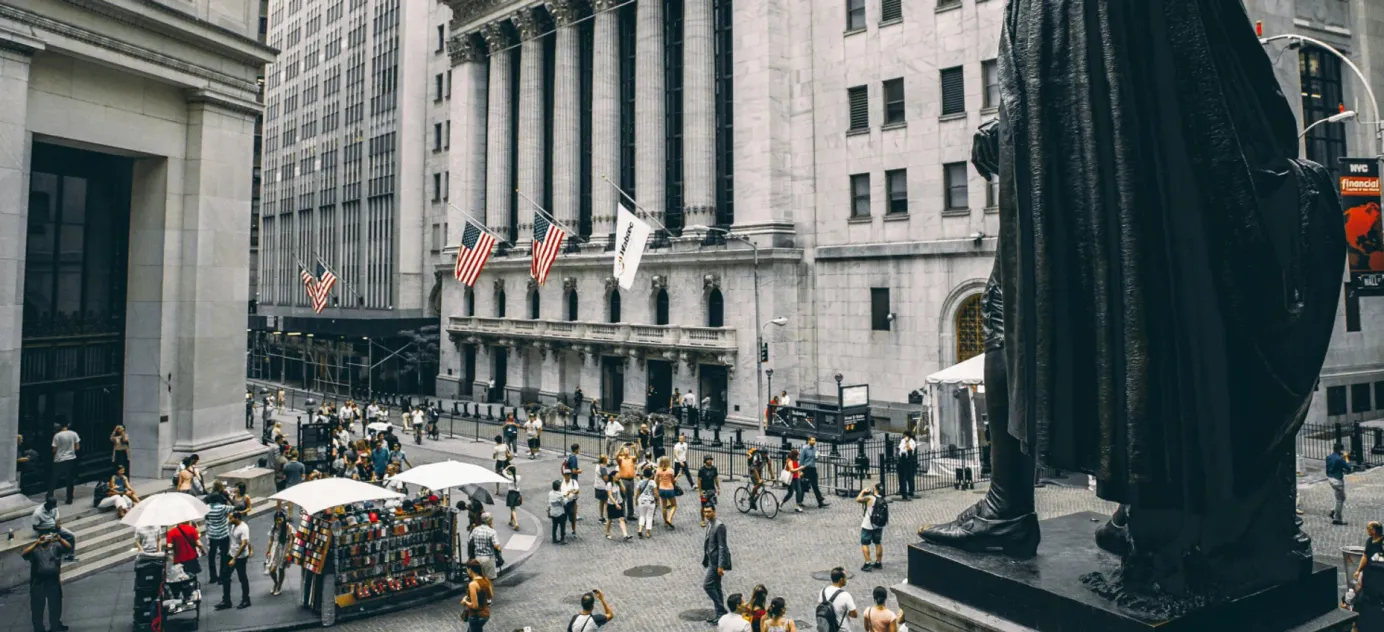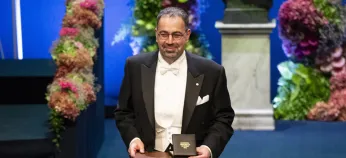
THE BELL WEEKLY: Billion-dollar loss for Russia's Facebook
Hello! Our main story this week is how the state is going to bail out VK after a staggering loss and mounting debt pile. We also cover the jailing of a Soviet-era dissident, once targeted by Vladimir Putin at the KGB, and highlight how the authorities are no longer trying to link Ukraine to Russia’s worst terror attack in 20 years.
VK posts huge loss, eyes massive cash injection
Tech giant VK, which operates the country’s largest social media site and is often dubbed “Russia’s Facebook”, posted a staggering set of results for 2024: a billion-dollar loss and overall outstanding debt of more than $2 billion. Now the firm, which the Kremlin is backing heavily to create a domestic alternative to YouTube, needs propping up with hard cash — for which a plan has already been put in place.
- VK is one of Russia’s leading tech companies. Yet while its revenues were up 23%, from 120 to 148 billion rubles ($1.4 bln to $1.7 bln) last year, its net loss almost trebled — from 34 to 95 bln rubles ($0.4 bln to $1.1 bln). That shot the company’s debt burden up 50% to 174 billion rubles ($2.1 bln) and set its debt-to-capital ratio at a very high 6.6. By comparison, the average ratio in the U.S. tech sector is 0.19 and Facebook-owner Meta runs at 0.16.
- Tactfully, the company’s press release did not mention any of those eye-watering figures. Instead it talked up a 20% increase in advertising revenue, which climbed to 96.1 billion rubles ($1.1 bln) and pushes its claim to be the biggest social media site in Russia. Last year, it said its average daily audience was 77 million users. However, inside Russia the platform is still less popular than messenger Telegram, whose creator Pavel Durov set up VK in the 2000s (read more about Durov, VK and Telegram here). VK had an average daily reach of 59 million in Russia while Telegram stood on 68 million, according to Mediascope data.
- The fact VK did not feel it needed to highlight the mammoth loss in the press release is not just sly corporate communications. Since 2021, when a stake in VK was handed to businesses linked to Yury Kovalchuk, a close friend of Vladimir Putin, and even more so since the Russian invasion of Ukraine in 2022, the company’s main task from the Kremlin has not been to make money, but to recruit and build its audience. VK has certainly tried to fulfil that role, spending huge sums on buying up content and exclusive deals with creators. But things really started moving in its direction only after the authorities started throttling YouTube — a move taken by the Kremlin precisely to ensure VK’s success.
- However, the strategy proved impossible to make profitable. VK’s financial performance has grown worse and worse. The state has already stepped in to save the company once, with a cash injection of 60 billion rubles from the National Welfare Fund in spring 2023. Now it’s time for another rescue. The company announced it would place 115 billion rubles of additional shares ($1.4 bln) — at a price of 326 rubles ($3.85) each, 6% higher than the current market rate. Existing shareholders will have the right to buy in at levels set in proportion to their current stakes.
- The shares that remain unclaimed by them (set to be the majority) will be sold to third-party buyers via closed subscription. They are likely to be bought up either by a state institution or an oligarch that has been directly instructed by the Kremlin to save the company. It’s not yet clear who will be given this task.
Why the world should care:
It’s not so important who becomes a new major shareholder in VK: the controlling stake will remain with gas giant Gazprom and Yury Kovalchuk. And the company’s strategic direction will continue to be set by Sergei Kiriyenko, deputy head of the presidential administration and father of VK’s CEO Vladimir Kiriyenko. The numbers themselves, however, are more interesting. Whoever bails out the social network will have to spend almost as much to cover VK’s losses as is needed to save the entire Russian coal industry, one of the worst performing sectors in the country that has come close to catastrophe in recent months.
Russia jails dissident once targeted by Putin at KGB for 16 years
A court in St. Petersburg has sentenced Alexander Skobov, a 66-year-old Soviet dissident and activist, to 16 years in jail on charges of justifying terrorism and joining a terrorist group. Skovov was first arrested more than four decades ago and Vladimir Putin was among the KGB officers who worked on his case. Prosecutors said Skobov justified terrorist attacks on Russian territory and supported the Freedom of Russia legion, which Russia has deemed a terrorist organisation for fighting alongside Ukrainian forces.
- Skobov will spend the first three years of his sentence in prison (typically reserved for highly dangerous criminals such as kidnappers and terrorists and repeat offenders), with the rest in a high-security penal colony. He will be 80 by the time he can be released, although it is questionable whether he will survive that long in Russia’s harsh prison system. The activist has many health problems, including diabetes, hepatitis C, asthma and glaucoma.
- At the court hearing, Skobov made clear that he did not believe he was facing a fair trial. He refused to answer questions and did not stand when the judge addressed him. “Today they will ask me again – do I plead guilty? Well, now I’m the one asking,” he said in his closing statement. “It’s me asking the servants of Putin’s regime who are present here, who are small cogs in his repressive regime: do you plead guilty to complicity in Putin’s crimes? Do you repent of your complicity?”
- In the USSR, Skobov was repeatedly charged with “anti-Soviet” offenses. He was first arrested in 1978 on charges of distributing anti-Soviet leaflets and was sentenced to two years in a psychiatric hospital (punitive psychiatry was widespread in the Soviet Union and used as one of the main tools of repression in the 1960s, 70s and 80s). Skobov was forcibly hospitalized again in 1982 for daubing anti-Soviet graffiti on the walls of a building and then released in 1985.
- Vladimir Putin, who worked in the Fifth Department of the KGB that was tasked with combating “ideological sabotage,” was among the KGB officers that handled his original cases, independent media and rights groups reported.
Why the world should care:
This is far from the first instance when somebody in Russia has been imprisoned for a post on social media. Since 2010, prosecutors have openedmore than 1,000 such criminal cases. But a 16-year sentence for an elderly activist in frail health stands out as particularly punitive. It’s safe to say that treatment of dissidents in modern Russia is growing far tougher than it was in the post-Stalin Soviet Union.
Russia no longer pushing Ukrainian link to Moscow concert hall massacre
Russian authorities appear to have quietly lost interest in pushing the idea that Ukraine was somehow connected to the worst terrorist attack in Russia of the last two decades. On the first anniversary of the Crocus City Hall massacre, officials barely mentioned the alleged Ukrainian link — something which they never provided any evidence for, but was nonetheless talked up by President Vladimr Putin in the days after the attack.
- March 22 was the first anniversary of the worst terrorist attack in Russia for 20 years — the massacre at the Crocus City Hall concert venue on the outskirts of Moscow. Masked gunmen opened fire on spectators at a rock concert then set the building on fire in an attack that killed 145 and wounded more than 1,000. In the days after the atrocity, Putin spoke about a “Ukrainian trace” to the attack, even though it had been claimed by Islamic State and the suspects were all citizens of Tajikistan. No evidence was ever presented for the alleged involvement by Kyiv, with the fact the suspected gunmen were arrested while apparently trying to flee Russia to the west — either into Belarus or Ukraine — the only thing proponents of the “Ukrainian trace” theory could concretely point to.
- Russia has arrested 19 people, including the four alleged perpetrators, with the case materials running to 420 volumes. The investigation has concluded but the case has not yet been brought to trial as the defense team has not sifted through the material, said Oleg Vlasov, one of the defense lawyers. The final version of the investigation concluded that the terrorists were recruited by the Islamic State’s Khorasan branch, an Afghan-based offshoot of the jihadist group, he said. However, the location of those who ordered the attack is unknown. After carrying out the massacre, the perpetrators were ordered to remain in place and “meet” the security services, the Russian investigation alleged. But instead they refused and tried to escape. Vlasov said he believes the coordinators of the attack intended for the gunmen to be killed when law enforcement arrived on the scene, thus wiping out the possibility of interrogations.
- When the organizers realised the gunmen had fled, they advised them to head for Ukraine, Vlasov said — but were given no instructions about how to cross the border. The lawyer thinks it is possible that the organizers hoped they would be shot by patrols on either side of the border. Meanwhile, the day after the attack, Putin claimed that a “window” had been prepared for the gunmen to cross the border into Ukraine and FSB chief Alexander Bortnikov said that they were “expected” in Ukraine.
- On the anniversary of the terrorist attack, Russian officials did not appear bothered about trying to double down on the claims of Ukrainian involvement. In a statement on Telegram, Russia’s Investigative Committee said the attack was planned and organized by the “security services of an unfriendly state with the aim of destabilizing the situation in Russia.” They did not specify which state they had in mind.
Why the world should care
Amid Russia’s war in Ukraine, the Crocus City Hall terror attack quickly faded from view. It seems that even the authorities have forgotten how, in the aftermath of the massacre, they tried to persuade everyone that Kyiv was involved.





